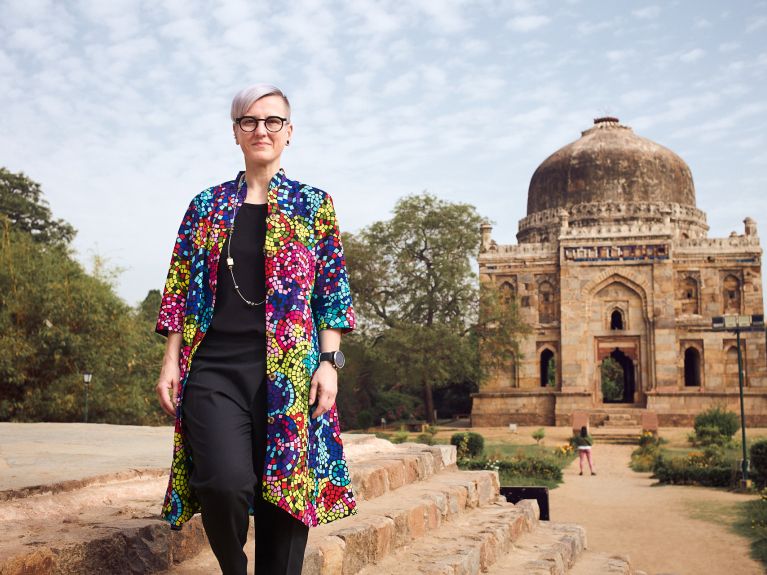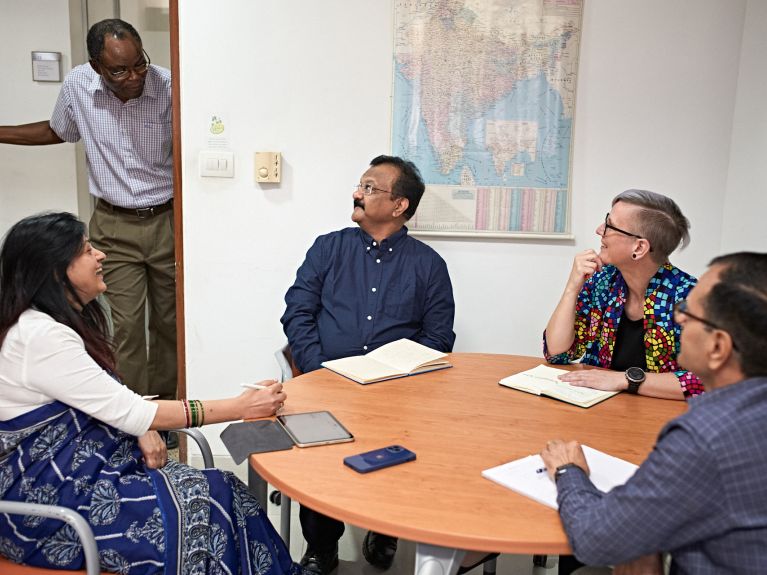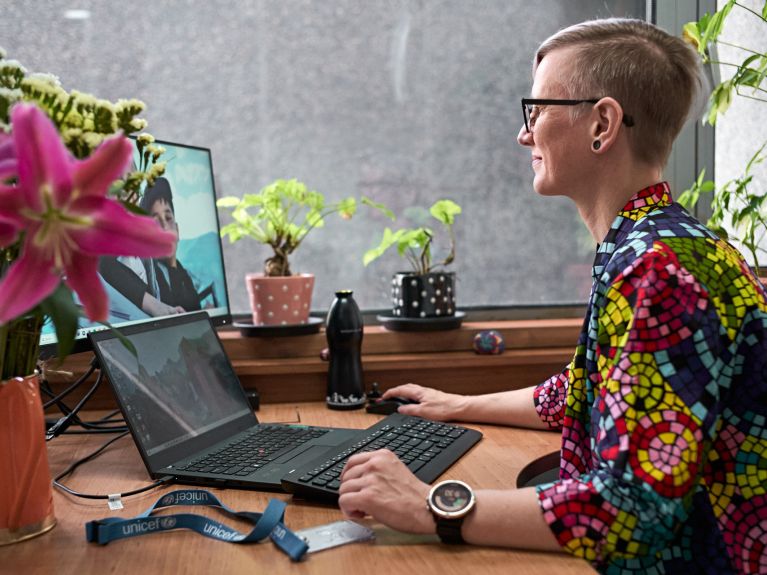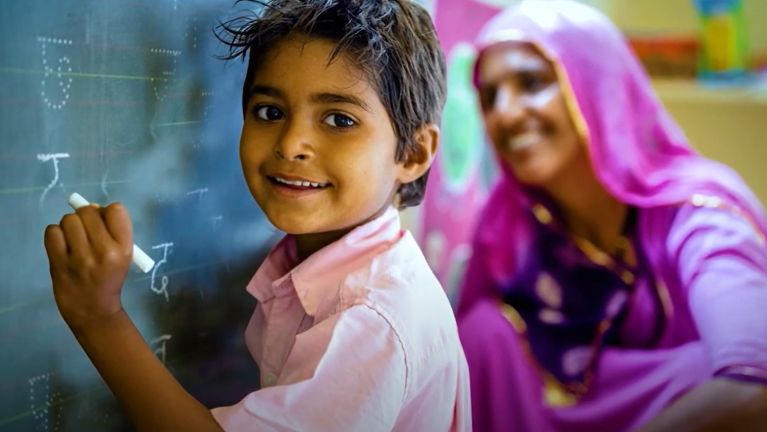Diversity is what her job is all about
Juliane Drews has been working for the United Nations for nearly two decades - currently as HR manager at UNICEF India.

Practising international networking: We present individuals who symbolise Germany’s partnerships around the world. Global challenges can only be overcome by working together.
Juliane Drews is used to working with people across different continents and time zones. All the same, she is still getting used to the fact that the time in nearby Nepal, where some of her colleagues are based, is 15 minutes later than where she is. Nepal is the only country in the world to have a quarter-hour time difference. So when it is 12 pm for Juliane in New Delhi, it’s already 12.15 in Kathmandu. Nobody seemed to mind when she arrived late for the first video call - in fact, everyone gives her the feeling that there’s no need to rush, she says. For some weeks now Juliane has been HR manager at UNICEF, the children’s aid organisation of the United Nations, in India.
Dieses YouTube-Video kann in einem neuen Tab abgespielt werden
YouTube öffnenThird party content
We use YouTube to embed content that may collect data about your activity. Please review the details and accept the service to see this content.
Open consent formPreviously she worked for UNAIDS in Geneva, for the International Labour Organization (ILO) in Turin, for the Deutsche Gesellschaft für Internationale Zusammenarbeit (GIZ) GmbH in the Palestinian territories, and before that for the ILO in Budapest. That’s where she met her husband, who has been her constant companion throughout her professional journey at the UN. That’s how it’s been since 2007, which is when Juliane Drews decided, after graduating with a degree in political science in Berlin, to work for international organisations, initially in more politically oriented positions and later in HR - a decision she hasn’t regretted for a second.
Responsible for 460 staff in India
As head of the HR team, she is currently responsible for 460 UNICEF staff in India - this encompasses every phase of a professional career, from job application to retirement. These are people from all kinds of backgrounds and with very diverse qualifications, who are needed to tackle the complex challenges that UNICEF’s work in India entails: improving the survival chances of children, protecting them from educational poverty, improving education for girls, ensuring access to vaccinations and much more besides.

Juliane’s own team comprises ten colleagues, all from India but with very different experiences and linguistic and cultural backgrounds. Especially in these first few weeks, Juliane is learning a lot from them - for example the fact that video calls can be scheduled at shorter notice here than she was used to in her previous positions. Or which universities in the country UNICEF should seek to recruit new staff from so as to ensure that marginalised groups are also given consideration.
The entire world in one office
Juliane describes working with people from all over the world, with all their cultural differences, as “incredibly enriching”. She also says that she profited from this in her previous roles. She learnt from a colleague from Malawi for instance that what is thought of as German efficiency doesn’t necessarily always produce the desired result. You can draw up as many timetables and to-do lists as you like, or indeed write demanding e-mails, but “that doesn’t by any means imply that anything will happen”. She says it is sometimes better to get to know someone in person, to chat and drink some coffee or tea with them, and to make a connection. “After that, it’s amazing how well you can work together.”

It’s not only her working environment she is enthusiastic about - Juliane is also enjoying her role as HR manager. Her firm conviction that diversity is essential if people are to be able to work together in a healthy, productive manner ties in with the inherent necessities of her profession: Women in senior positions are the norm at the UN. And it is taken for granted that people from Africa, Asia and Europe will all be working together in one office. Language diversity is a daily reality. As head of the HR department, Juliane is explicitly supposed to aim for a balanced geographical representation among staff and “a good mixture of everything”. Diversity is what her job is all about.
It’s about more than just promoting women
Juliane Drews fully supports this. She describes herself as a feminist and expressly sees this as being about more than just promoting women - it’s about the distribution of power and access to resources. Juliane regards feminism as a world view and a way to make society more just. So it’s hardly a surprise that she is in favour of thefeminist foreign and development policy the German government has been pursuing since 2023. In line with this philosophy, what she would like to see is a stronger leadership role for Germany in the UN - one based on values that are about results rather than about “shining at the top table”.
Asked whether such ideals might perhaps not reflect the harsh reality or the power structures in place today, she replies: “I come from East Germany and witnessed how a better situation was brought about even without force.” As a result of this personal and historic experience of the peaceful revolution of 1989, which ultimately led to German reunification, she tends to approach things with optimism. She believes in the power of change, as her biography testifies.
In India she wants to get to know the country and its people, to do her job well and initiate change - and to play bicycle polo again. She loves this unusual sport and plays it whenever she can, even at competitive level. She hasn’t found out yet whether bicycle polo is also played in New Delhi. She simply hasn’t had the time. But of course, she is optimistic. And if not, “then we will simply have to set up a club”.



